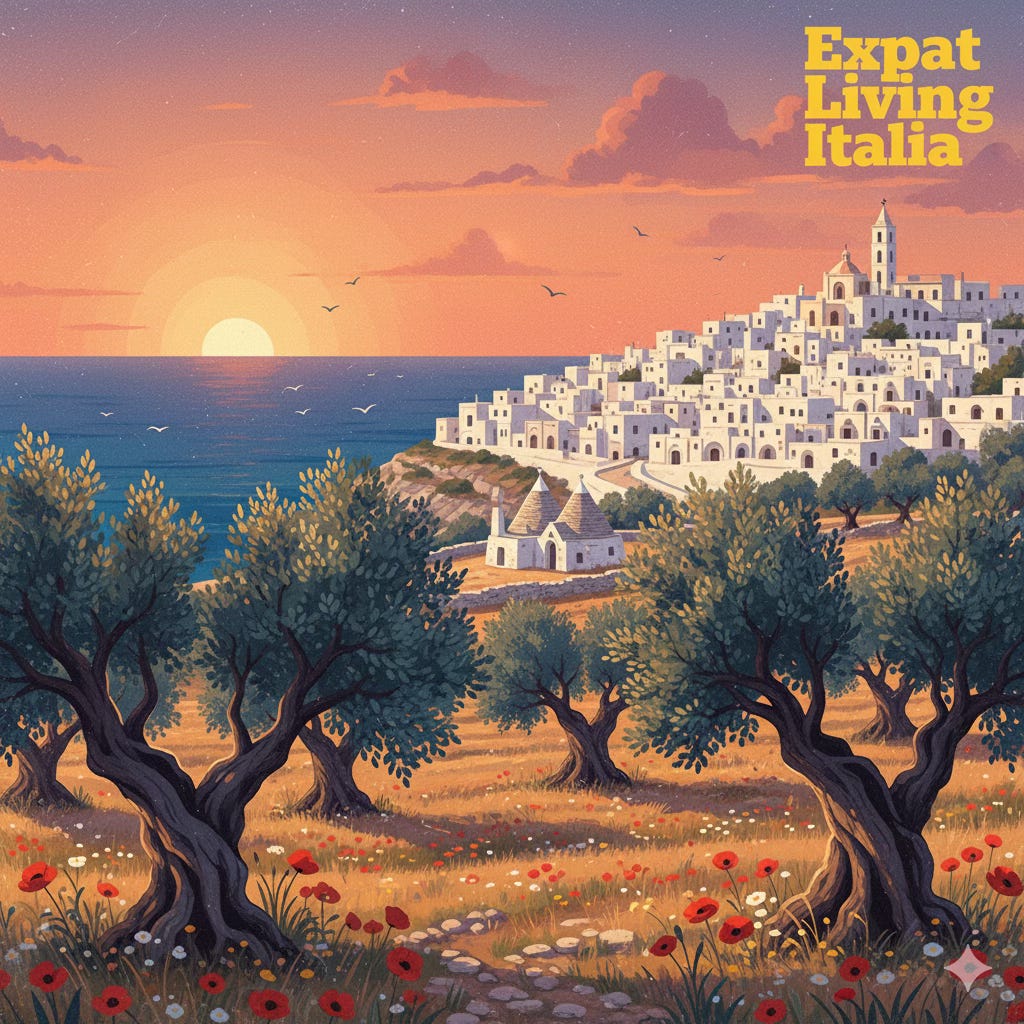Puglia vs. Portugal: Which is the more affordable paradise for your retirement?
Discover the ultimate retirement paradise
The dream of retiring to a sun-drenched European coast is a shared fantasy for many, with both Italy and Portugal offering an intoxicating mix of stunning landscapes, rich culture, and a relaxed pace of life. But when it comes to the bottom line, which destination offers more bang for your buck?
Let's break down the cost of living for an expat retiree in two of the most popular regions: Puglia in Southern Italy and Portugal's captivating coastal and interior towns.
The Financial Snapshot: Puglia vs. Portugal
While both countries are significantly more affordable than major U.S. or Northern European cities, Portugal consistently wins out as the most budget-friendly option.
Portugal's Advantage: Portugal is widely considered the most cost-effective country in Western Europe. A retired couple can live comfortably on a budget of $2,500 to $3,000 per month in a small town or village, while it's possible for a single person to live on just over $1,500 a month in some areas.
Puglia's Value: Puglia, while a "hidden gem" compared to Northern Italy, is still generally more expensive than Portugal. While you can live on a budget of around €1,200 per month as a couple, a more comfortable expat lifestyle in a city like Bari would likely require a budget closer to €2,500 to €3,000 per month.
A Deeper Dive into Key Expenses
Housing: This is typically the biggest factor in any budget, and Portugal takes a significant lead here.
Portugal: In less expensive areas of the interior, you can find a two-bedroom apartment for as low as $450 to $600 per month. In popular expat havens like the Algarve, a two-bedroom rental might cost around $1,300.
Puglia: Rental prices in undiscovered Puglian villages can be as low as €400 per month, but in a more desirable town, you should budget at least €650 per month for a one-bedroom apartment.
Groceries & Dining: Both countries are a foodie's paradise, but Portugal's daily expenses tend to be slightly lower.
Portugal: A meal for two at a local restaurant can be as low as €20-€40. You can find exceptional value with the daily "prato do dia" lunch specials.
Puglia: Dining out is also very affordable, but expect to pay slightly more. A dinner for two can easily cost €50 or more, depending on the restaurant.
Healthcare: Both countries have excellent public healthcare systems, but the costs for private insurance and services differ.
Portugal: Private health insurance is highly affordable and often preferred for faster service. Plans for retirees can range from €100-€300 per month.
Puglia: While Italy's system is also excellent, navigating the regional variations can be more complex. Private insurance is a bit more expensive, with plans averaging €80-€150 per month.
Taxes: Tax incentives are a major consideration for retirees.
Portugal: Portugal’s now-defunct Non-Habitual Residence (NHR) program was a huge draw for expats, but it has been replaced by a new regime. However, the D7 Visa for retirees still requires proof of passive income (like a pension) of at least €870 per month and is a more straightforward process for residency than Italy's.
Puglia: Italy’s Elective Residency Visa requires a significantly higher passive income, at least €32,000 per yearfor a single person, and it does not allow you to work. This makes it a more suitable option for those with a higher retirement income.
The Final Verdict
For retirees on a fixed income, Portugal offers a more accessible and financially sustainable path to European retirement. The lower cost of living, simpler visa process, and a strong sense of community for expats make it a top choice.
However, if your heart is set on the rich history, unparalleled cuisine, and expressive culture of Southern Italy and you meet the financial requirements, Puglia offers an equally rewarding, albeit slightly more expensive, experience. It comes down to whether you prioritize budget and ease of entry (Portugal) or the unique, magnetic charm of la dolce vita (Puglia).


